Are you wondering if it’s safe for your bearded dragon to eat spiders? When managed properly, spiders can be a great addition to the diet of this omnivorous reptile. Bearded dragons should not rely solely on spiders as their main source of food and nutrition though; most spider species are carnivores and may harbor parasites that could be harmful to our scaly friends.
In this blog post, we will discuss why feeding spiders is generally not recommended as part of a bearded dragon’s regular diet, examine suitable alternatives, provide guidelines for safely feeding pet lizards with insects such as house or jumping spiders when needed and explain which foods make up the recommended optimal beardie meal plan.
Let’s get started!
Key Takeaways
- Spiders are not suitable to form a large portion of bearded dragons’ diet. They should be eaten in moderation and as an occasional treat, ideally no more than once or twice a week.
- House spiders can provide some nutrition but are best avoided due to their potentially poisonous nature, so it is important to make sure they are safe before feeding them to your pet bearded dragon.
- Bearded dragons should have varied diets composed primarily of feeder insects such as locusts or crickets, vegetables and greens for optimal nutritional value.
- When introducing different foods like spiders into their diets, precautionary measures such as washing the spider with tap water must be taken in order to reduce risk of contaminated food entering your beardie’s system which could lead to illness later on; always making sure they’re alive prior serving helps too!.
Can Bearded Dragons Eat Spiders?
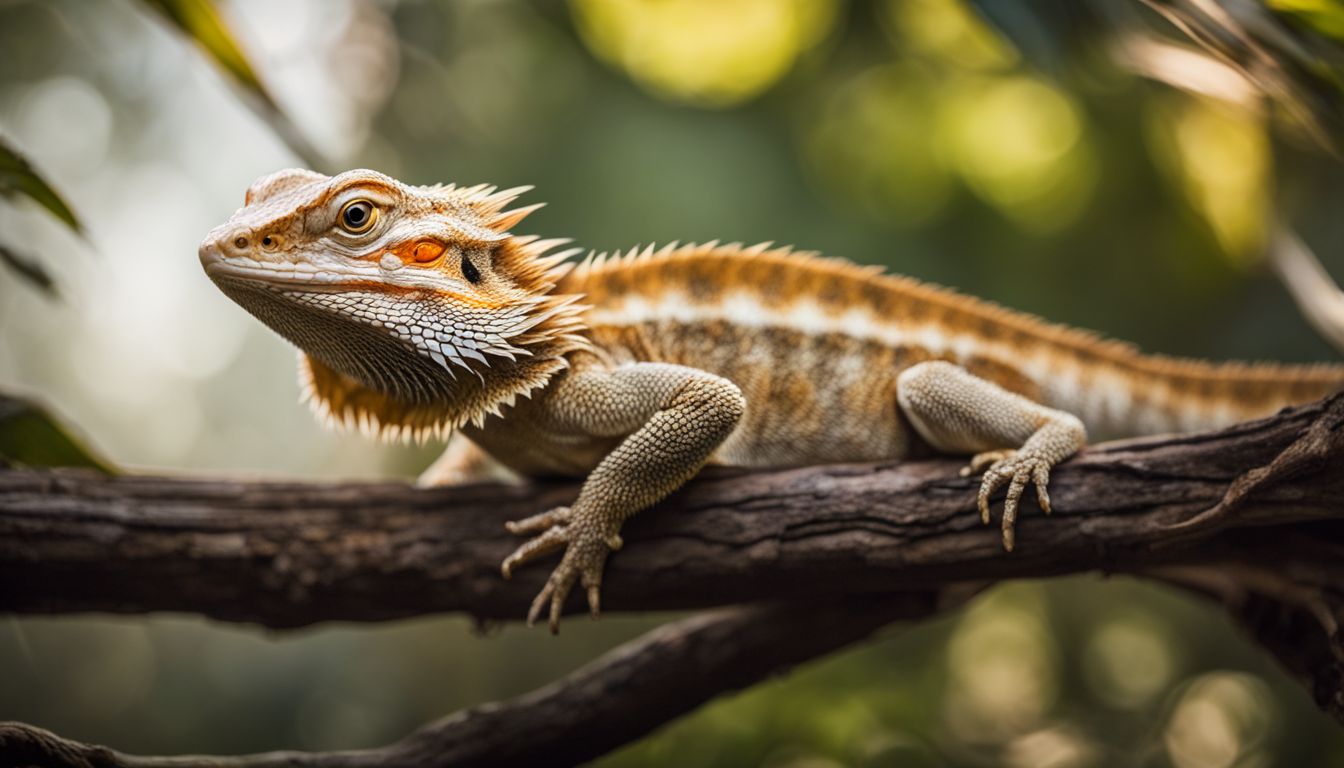
While spiders can be a nutritious part of a bearded dragon diet, there are safety concerns to consider before offering them as food.
The pros and cons of feeding spiders to bearded dragons
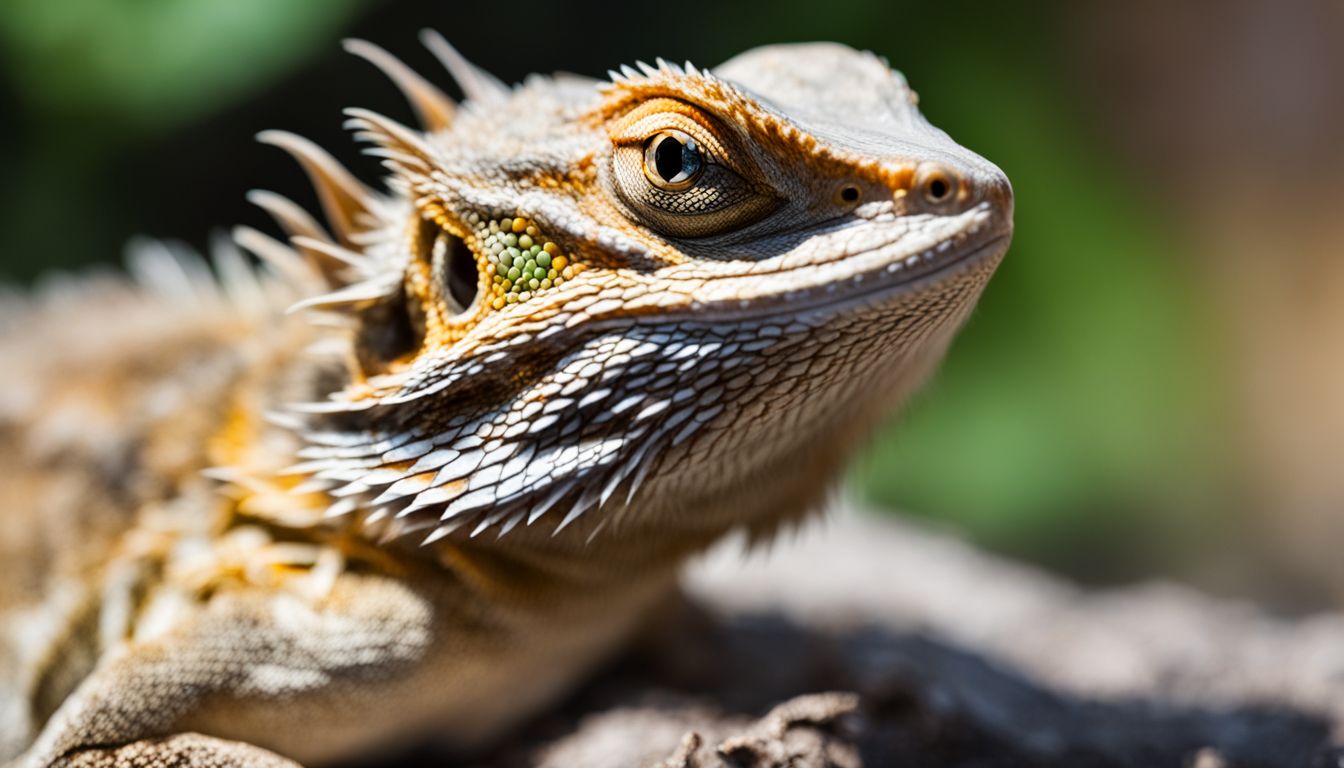
| Pros | Cons |
|---|---|
| Spiders do provide some nutritional value to bearded dragons, including protein and fat. | Too much fat in a bearded dragon’s diet can lead to obesity, and spiders are known to be high in fat. |
| Feeding spiders can add variety to a bearded dragon’s diet, preventing boredom and stimulating appetite. | Spiders could potentially carry parasites and diseases that could be harmful to your bearded dragon. |
| House spiders are readily available and could serve as an emergency food source if needed. | The digestive system of bearded dragons may not be able to properly process spiders, possibly leading to digestive issues. |
| Bearded dragons can eat various insects, including spiders, contributing to their diverse diet. | Feeder insects such as crickets and mealworms provide a better nutritional balance for bearded dragons than spiders. |
Overall, although spiders could be part of a bearded dragon’s diet, they should not be the sole or primary source of food. It’s important to provide a balanced diet of different foods, which includes insects, greens, and vegetables, to keep your bearded dragon happy and healthy.
Health risks and potential illness
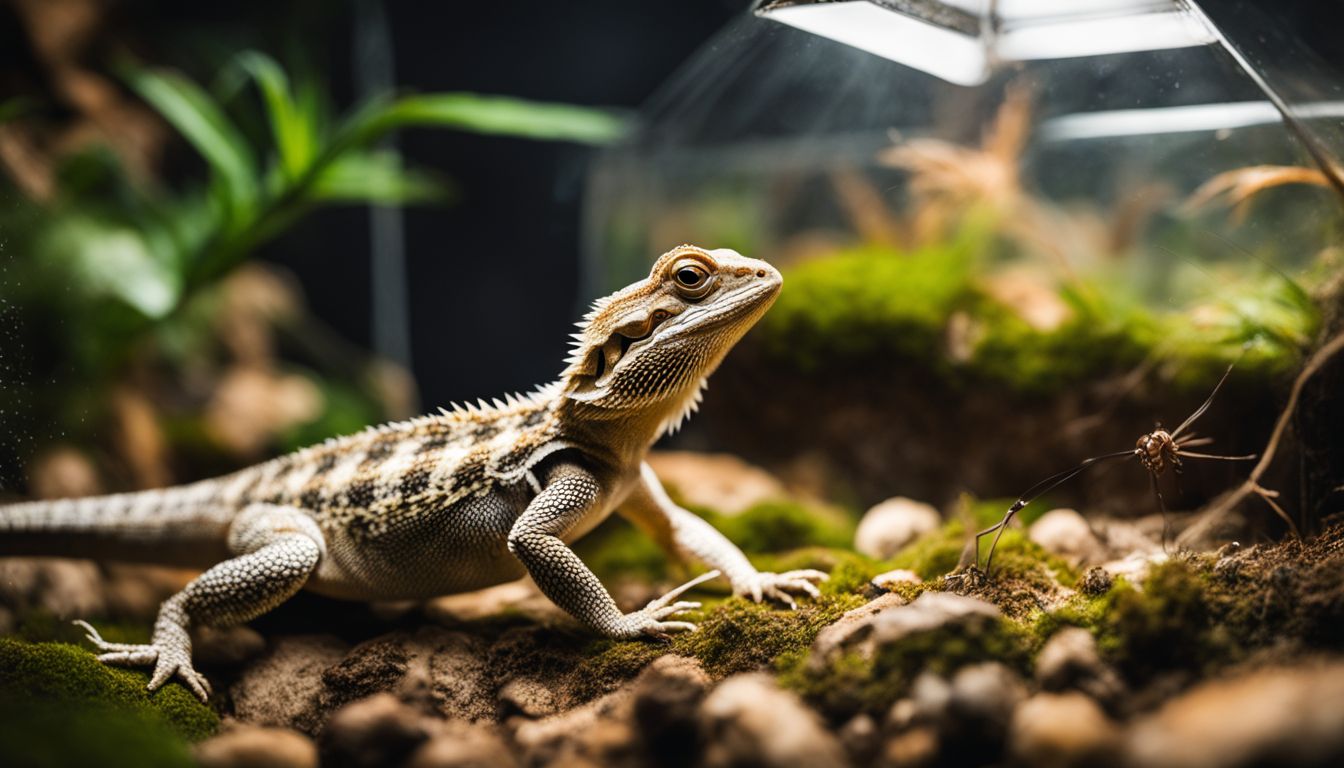
Spiders may not be an ideal food source for bearded dragons due to the health risks they pose. Many of the most common spider species are venomous and their bites can cause allergic reactions in some animals, including bearded dragons.
Spiders also lack nutritional value for adult bearded dragons, so feeding them as a staple part of their diet is unadvisable. Furthermore, certain spiders have the potential to poison a beardie by injecting toxic substances into its body – this risk increases if there are multiple spiders present in one meal or when offering live prey.
Finally, although rare, spider bites can transmit diseases such as Myiasis which can prove fatal if left untreated.
Nutritional value for adult bearded dragons
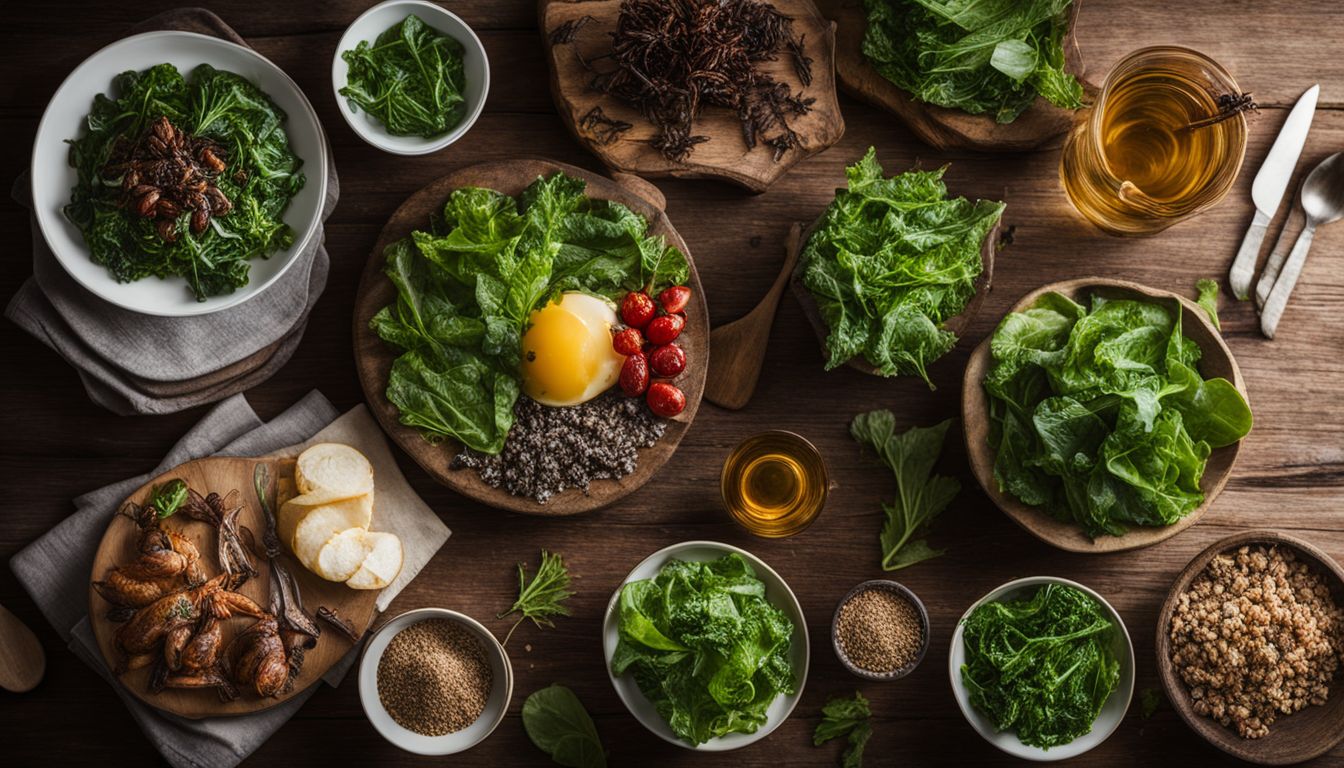
Bearded dragons require a balanced diet of insects, vegetables, and greens. Adult bearded dragons should consume an array of insects like crickets and locusts that provide essential vitamins and minerals.
These insects are especially high in important nutrients such as calcium, protein and fat, which help keep bearded dragons healthy—especially when combined with fresh leafy greens for vitamin A.
While spiders can be eaten by bearded dragons, due to their poisonous nature they do not have the same nutritional value as other insect options like mealworms or wax worms. This makes feeding adult bearded dragon diets consisting mainly of spiders more likely to lead to health issues or deficiencies compared to those who eat a varied diet with conventional insect choices along with fresh vegetation.
Alternatives to Feeding Spiders
There are many potentially safer options for bearded dragons outside of feeding spiders, including insects, fruits and vegetables.
Safe foods for bearded dragons

- Insects: These are an important source of protein for a bearded dragon diet and can include feeder insects such as dubia roaches, crickets, mealworms, silkworms, phoenix worms, and waxworms.
- Vegetables: These should make up the majority of your bearded dragon’s diet and could include cabbage and collard greens, turnip greens, dandelion greens, endive, escarole, kale, butternut squash, sweet potatoes or pumpkin cubes and zucchini.
- Greens: These are also important to provide your bearded dragon’s with additional fiber in their diet. Some good options are basil leaves, watercress leaves, parsley or cilantro leaves. Some types of fruits may also be fed occasionally as a treat to provide variety in their diet.
Other insects and prey options
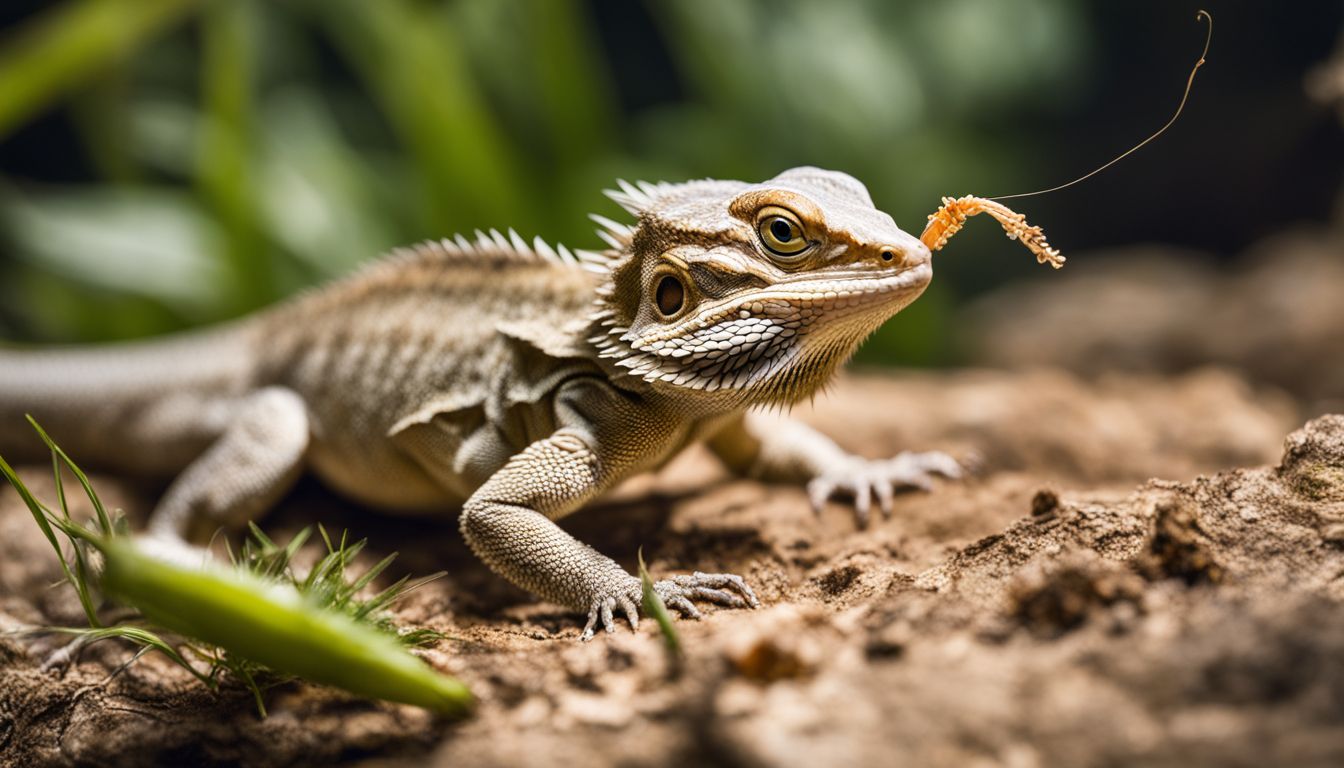
When it comes to feeding bearded dragons, there are several safe options available other than spiders. Bearded dragons’ diets should primarily be composed of a range of insects, vegetables and greens for optimal nutrition. Some good choices include crickets, dubia roaches, mealworms and earthworms.
- Crickets: These are one of the most commonly fed feeder insects for reptiles due to their high protein content. They can be dust with calcium or multivitamins once twice a week before being served as a snack.
- Dubia roaches: Otherwise known as tropical wood roaches which have been used more often in recent years due to their natural food sources and availability throughout the year. Dubias contain around 30 percent fat which helps create healthy beardies that they use during growth periods like brumation or shedding season when metabolism slows down; making them an excellent choice for providing essential nutritional value for adult bearded dragons as well as juveniles who need extra fatty acids at this stage in life development
- Mealworms: A great dietary supplement mainly because they offer far fewer salmonella bacteria than the average cricket does; making them safer overall even if you feed them live compared to dead ones (courtesy freezing). Found in varying sizes from full grown adults to baby larvae (caterpillars); these worms provide plenty of fats by way of highly nutritious fat rich proteins perfect for growing bearded dragon’s tails up into adulthood!
- Earthworms: Rich with calcium earthworm give your pet reptile an admirable source of vital nutrients important towards strengthening delicate bones while offering slightly more variation on insect options versus sticking solely with just crickets alone–or any worms similar too!
Feeding Guidelines and Safety Precautions
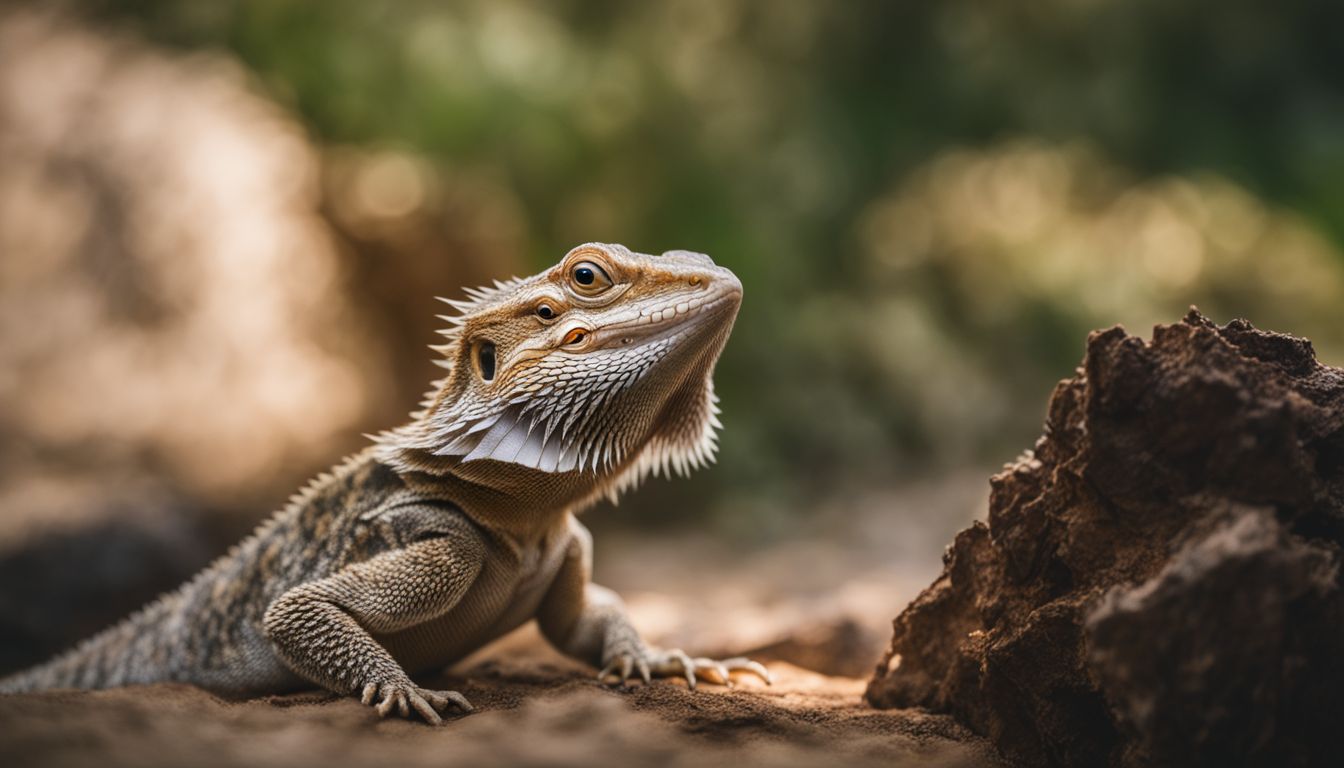
To keep bearded dragons safe when eating spiders, always follow proper preparation and safety measures, such as properly thawing frozen prey and learning which kinds of spiders are poisonous for the reptiles.
How to feed spiders to bearded dragons

- Choose spiders that are safe for bearded dragons to consume – it is best to feed store bought crickets and other insects.
- Prepare and handle the spiders with care, as they can carry bacteria or diseases from their environment which can harm a bearded dragon’s health if ingested.
- Feed small amounts of spiders only once or twice a week, never making them the primary source of food in the diet plan due to lack of nutritional value and potential risks of consumption including spider poisoning if the insect carries any toxins from its habitat before being fed to your pet.
- Monitor your pet closely after feeding spiders, observing behavior changes or signs of distress such as vomiting, diarrhea, lethargy etc., which could be an indication that something has gone wrong in terms of safety while eating their meals.
5 .Make sure there is plenty of fresh water available at all times so your Bearded Dragon stays hydrated especially when consuming dry food like spider legs which can dehydrate it quickly without proper fluid balance maintenance throughout the day; always providing them access to drinkable liquid sources right away will prevent additional issues later on related dehydration levels increase too much at once during this mealtime practice session..
Preparation and safety measures
- Select only spiders that are safe to consume, such as tarantulas and crickets.
- Wash the spiders with tap water before feeding them to a bearded dragon.
- Remove any cobwebs or debris from the spider’s body to reduce the risk of potential illness for your pet bearded dragon from parasites or other contaminants on the spider’s shell or legs.
- Before feeding a spider, make sure it is alive and healthy by gently prodding it; if it shows signs of struggling, discard it and select another one instead so your bearded dragon will not get sick.
- Choose only appropriately sized prey items for your Beardie; avoid giving feeder spiders that are larger than its head because they can choke on them or might struggle when trying to swallow their prey due to their size difference in comparison with other food items routinely ingested by a Bearded Dragon like worms and crickets .
6 After confirming all safety measures have been met, provide cautious supervision while introducing new prey items into your beardie’s diet such as depending on variety of species keeping lizards pets must attend pre-precautionary steps diligently
Recommended Diet for Bearded Dragons
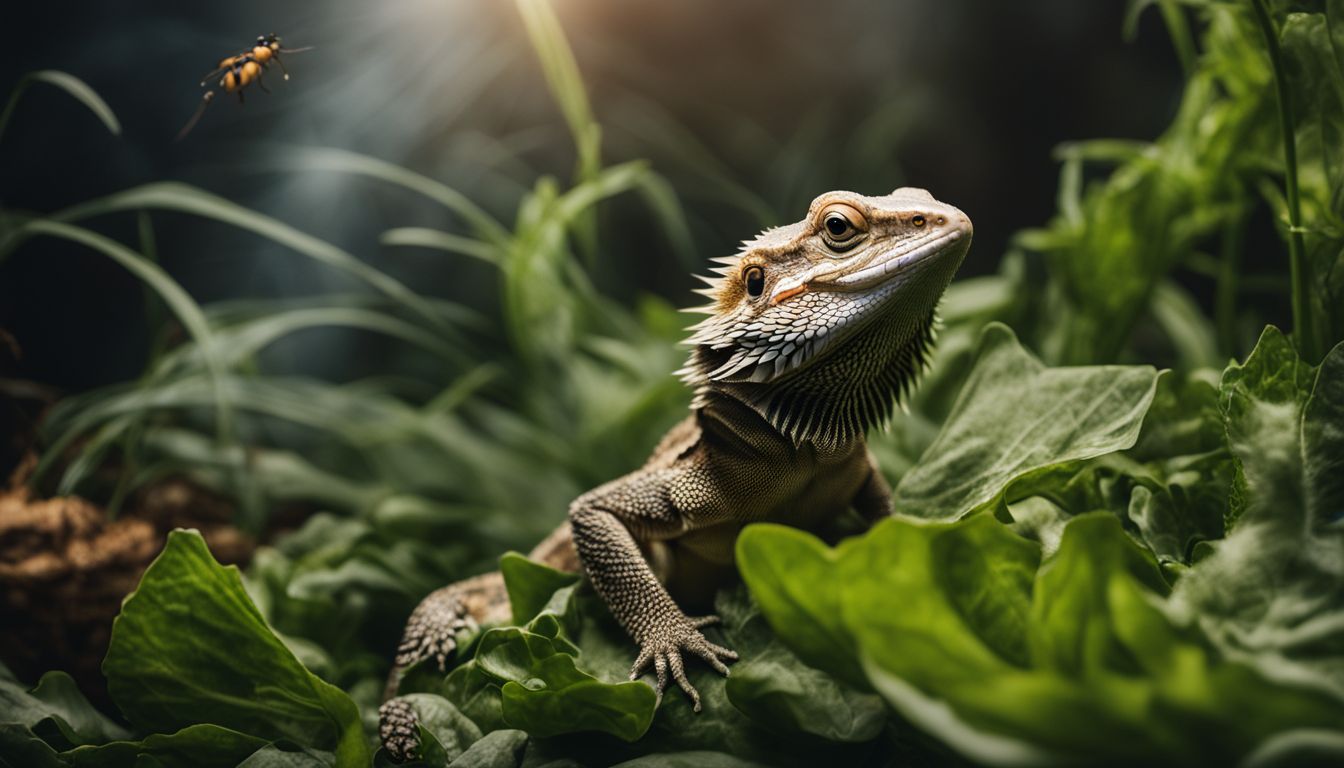
An appropriate diet for bearded dragons is one that consists primarily of insects, dark leafy greens, and non-starchy vegetables.
Insects, vegetables, and greens
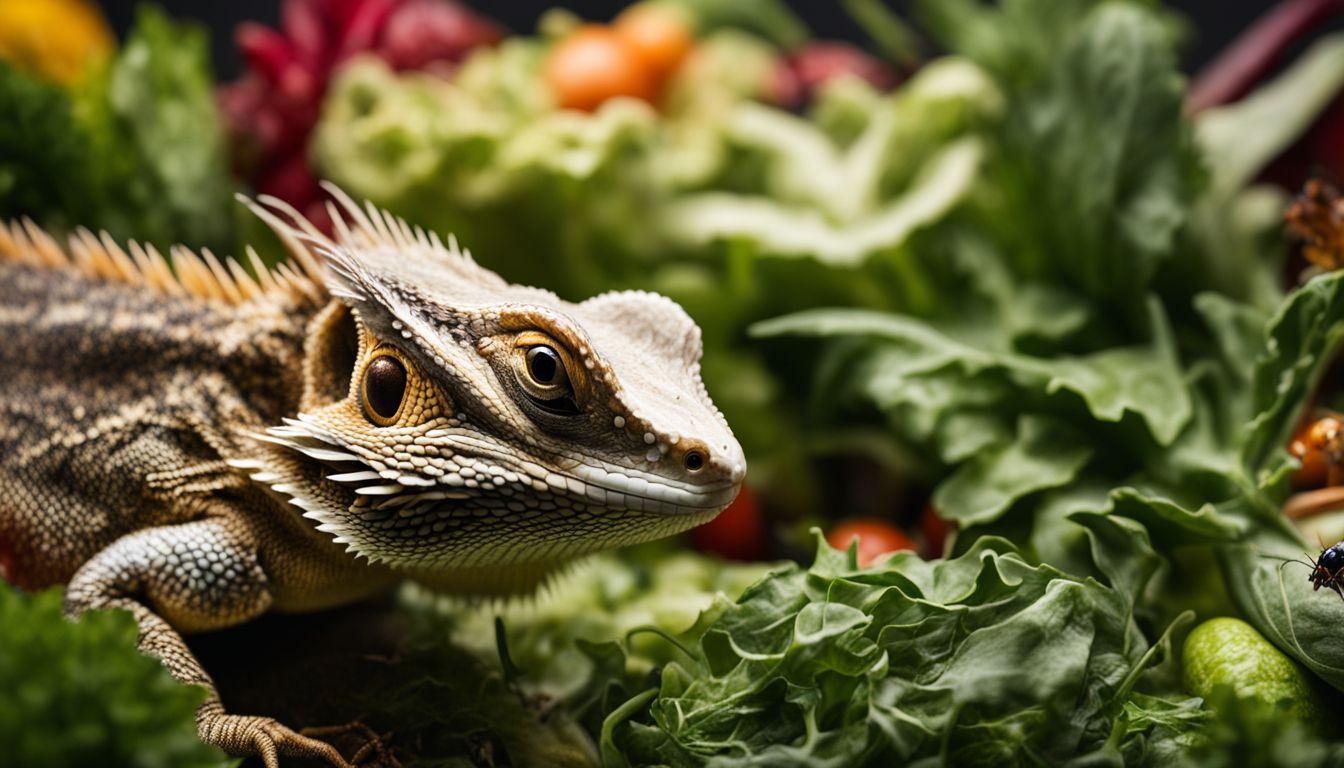
Bearded dragons are omnivorous animals and should eat a combination of insects, vegetables, and greens for optimal health. Crickets are an excellent source of protein that can be fed to adult bearded dragons daily as part of the diet. Squash and collard greens are safe plant-based foods commonly included in a beardie’s diet. Although mealworms and wax worms have higher fat content, they still make great occasional treats when fed in moderation. To provide variety in their diets it is important to feed commercially available insects such as locusts or grasshoppers in addition to crickets that can purchased live or dried at pet stores or online retailers. For baby beardies it is especially important to include plenty of leafy green vegetables (e.g., kale) and squash on top of their regular insect intake – this will help them grow into healthy adults! Be sure to follow any specific instructions provided by your veterinarian regarding dietary requirements for bearded dragons as each individual situation may differ slightly from one another.
Occasional treats and variety
When feeding bearded dragons, it’s important to provide them with a variety of foods. This is because when fed the same diet over and over, they can become bored or malnourished. When introducing different foods, make sure that whatever you’re offering is safe and nutritious; think small insects such as crickets, mealworms and cockroaches instead of more dangerous spiders.
Additionally including some fruits and vegetables in your beardie’s diet will ensure they are getting all the vitamins necessary for optimal health. Fruits such as strawberries (in moderation) are great for adding healthy treats to their diets occasionally, while also providing extra nutrition like Vitamin C; however this should not replace their regular meals or be given too frequently! It’s best to feed your dragon two main insect meals plus light salads daily then offer occasional treats every few weeks so that they stay engaged at mealtimes and their diet remains balanced in terms of nutritional value.
Conclusion
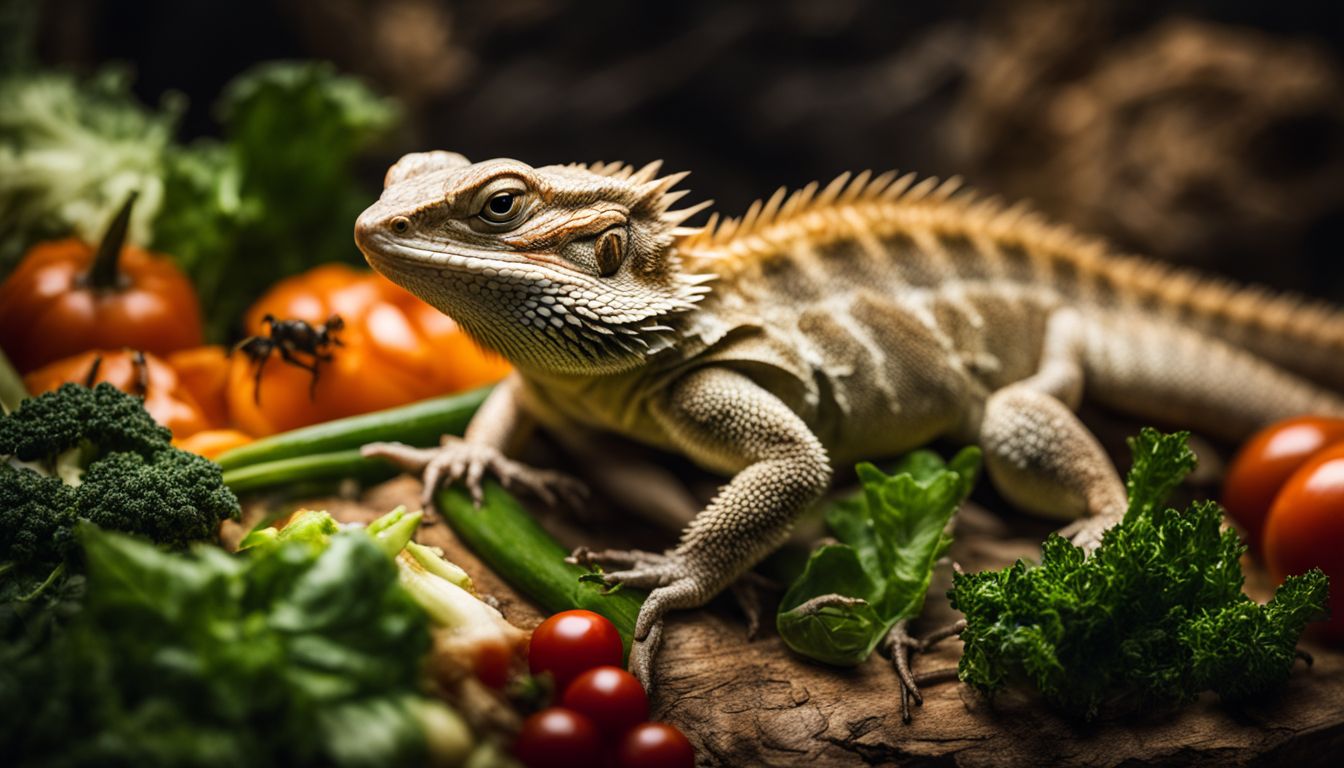
Bearded dragons can eat spiders, but it should not be a regular part of their diet. House and jumping spiders are safe for beardies to eat, as long as they’re not poisonous. However, these spiders do not provide much in terms of nutrition so they mustn’t form a substantial portion of the dragon’s diet.
Instead, insects such as crickets or mealworms should be supplemented with vegetables and greens to give your bearded dragon all the vital nutrients necessary for optimal health. It is important to monitor your pet closely when offering new foods like spiders—as always safety comes first!
FAQs
1. Can bearded dragons eat spiders?
Yes, bearded dragons can safely consume spiders as part of their diet in moderation.
2. What type of spiders are safe for my bearded dragon to eat?
The best spider foods for a bearded dragon are small insects like crickets and mealworms, or wild-caught arthropods such as silkworms, harvestman, and curlytails. Wild-caught spiders from the correct environment may be fed occasionally but they should never be consumed raw and preferably cooked first.
3. Is it unsafe for bearded dragons to consume certain types of spiders?
Some types of spiders including wolf spider, black widow spider, brown recluse spider and hobo or funnel-web fungi should not be consumed by bearded dragons due to their toxic nature. It is also important to ensure that any feeder insects used do not contain pesticides before feeding them to your reptile pet.
4 .What other dietary needs do I need to consider for my beardie’s health?
Apart from providing adequate animal protein (insects) sources in their diet, it is also essential to include leafy greens such as collard greens, dandelion leaves etc., fruits such as tomatoes, apples and berries at no more than once a week frequency into your beardie’s diet regime; with calcium supplements added intermittently too depending on age!




